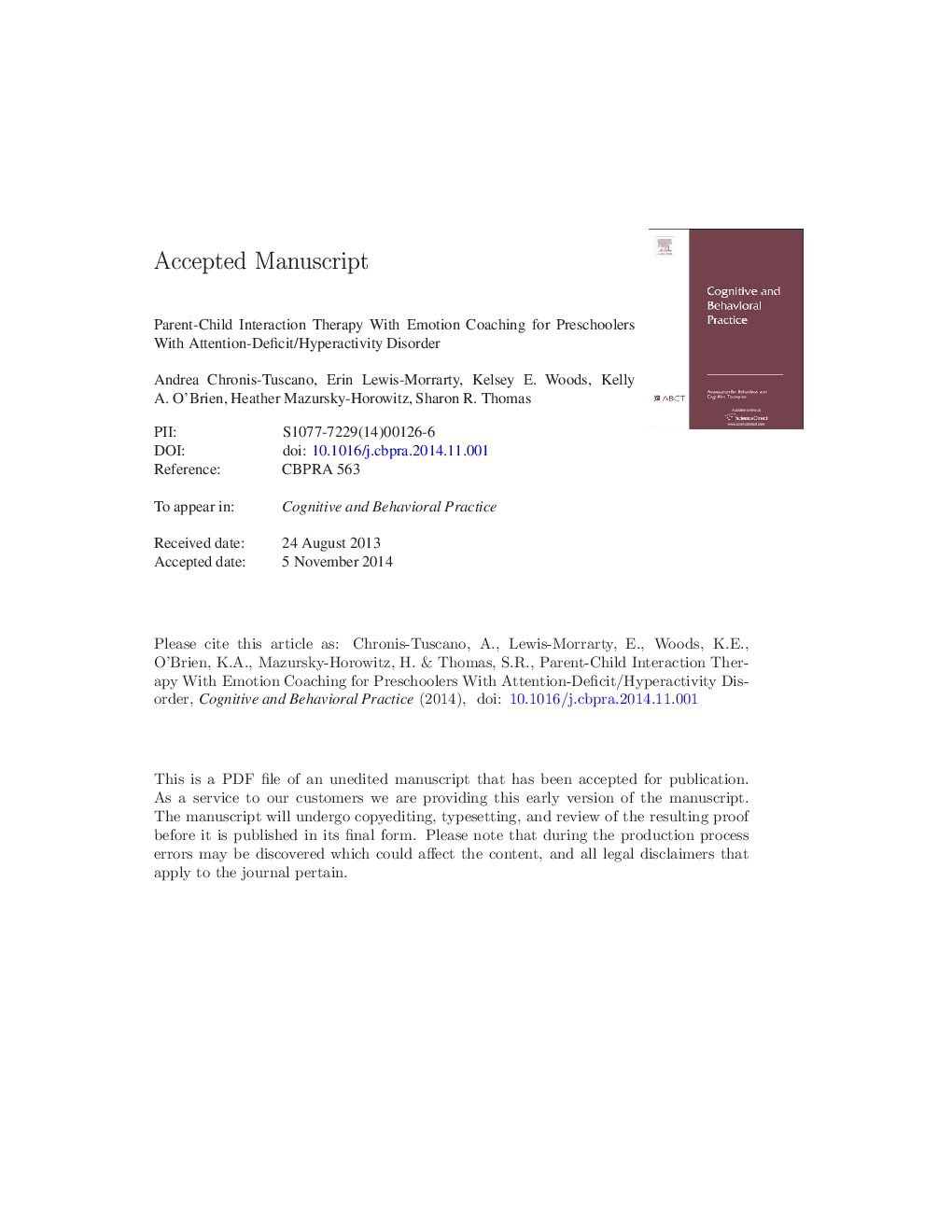| Article ID | Journal | Published Year | Pages | File Type |
|---|---|---|---|---|
| 10446153 | Cognitive and Behavioral Practice | 2016 | 44 Pages |
Abstract
Preschoolers with attention-deficit/hyperactivity disorder (ADHD) are at increased risk for the development of comorbid conduct disorder (CD) and depression. Early predictors of serious adverse outcomes within this population include parenting characterized by high levels of negativity and low levels of positivity, maternal depression, and child emotion regulation (ER) difficulties. Parent-child interaction therapy (PCIT) is an evidence-based treatment for oppositional defiant disorder and CD that has also been shown to improve comorbid child internalizing symptoms and maternal depression by enhancing parenting and improving the parent-child relationship. PCIT-emotion development (PCIT-ED) is an adaptation for depressed preschoolers, grounded in developmental literature, which teaches parents to become “emotion coaches” for their children, in an effort to build child ER skills. In this paper, we describe the iterative process by which we implemented and adapted PCIT-ED based on our experiences treating nine children with ADHD. We present three case examples that exemplify our process in adapting the PCIT-ED manual. This work suggests that PCIT with parent emotion coaching (PCIT-ECo) may be a promising treatment approach for young children with ADHD. Future research will need to examine this adaptation relative to standard PCIT to determine whether our integration of parent emotion coaching results in added improvement in child ER, internalizing and externalizing problems, and functional impairment.
Keywords
Related Topics
Health Sciences
Medicine and Dentistry
Psychiatry and Mental Health
Authors
Andrea Chronis-Tuscano, Erin Lewis-Morrarty, Kelsey E. Woods, Kelly A. O'Brien, Heather Mazursky-Horowitz, Sharon R. Thomas,
